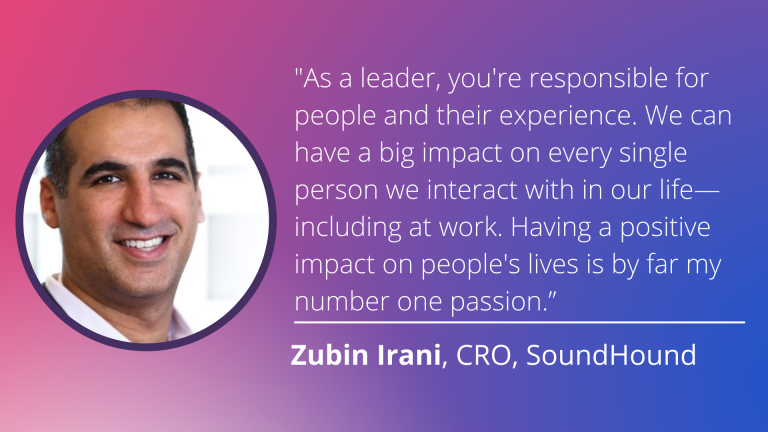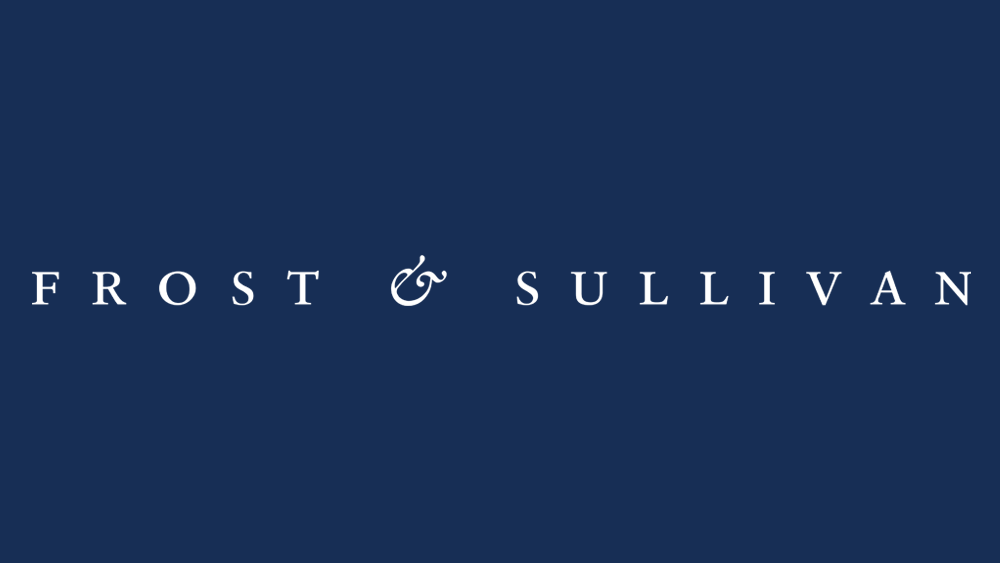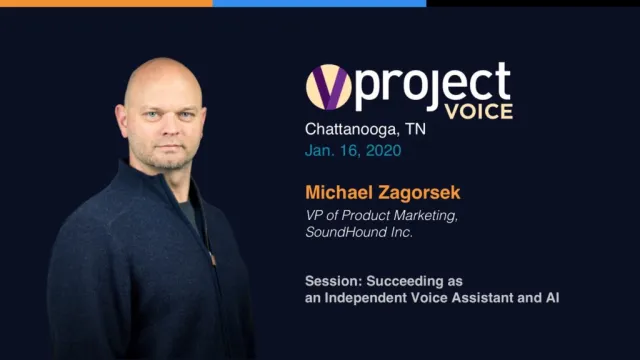
Building an Exceptional Culture with SoundHound’s CRO, Zubin Irani
Meet our Executive team! We’re back with our Executive Interview Series, this time interviewing SoundHound’s Chief Revenue Officer, Zubin Irani.
Products
Our Platform
SoundHound’s independent voice AI platform is built for more natural conversation.
Solutions
For Every Industry
Find a customizable and scalable voice AI solution for your industry or use case.
Resources
Get the latest voice AI news, keep up on trends, get expert advice, and discover new solutions.
Our Company

Frost & Sullivan Names SoundHound AI a Leader for Enterprise Conversational AI in Healthcare 2024


By: Karen Scates
To kick-off the 2020 Project Voice Conference in Chattanooga, TN (January 13-17), Ian Utile, CEO of attn.live, and Mike Zagorsek, VP of product marketing at SoundHound Inc., sat down for a quick chat about the state of the voice tech industry.
Ian: Mike, would you please introduce yourself and for those that may not know much about SoundHound Inc. or Houndify, could you tell everybody about that as well?
Mike: We’re a 14-year-old company that became known as a voice AI company when we introduced Houndify and Hound in 2015. Houndify is our developer platform that allows developers and the partners we work with to add a voice experience to their products. Hound is our voice assistant app in the U.S. market. Hound is a great way to experience Houndify through a daily use case that’s supported by voice.
Ian: If people want to use Hound, are they limited in terms of hardware devices? Do they have to use a cell phone or a tablet? Can I use a voice device?
Mike: What’s particularly relevant to the voice community is our platform Houndify and that is not limited by hardware or software since our technology all runs essentially on the cloud. Connectivity is really the key ingredient that enables the voice transaction. We have an embedded version of our technology and we’re starting to see that a lot more in our automotive partnerships with Mercedes, Honda, Hyundai, and a few European brands. For them it’s really important to be local. But as IoT products proliferate, the cloud connection is really key.
“Connectivity is really the key ingredient that enables the voice transaction.”
One product that uses Houndify is Hound, hence the relationship. You can think of Hound as being powered by Houndify the same way the Mercedes MBUX, “Hey Mercedes” is powered by Houndify. So, Houndify is really the platform that powers the voice and the products are the ones that take advantage of it.
Ian: So Hound is the consumer product that people can interact with and use. How about if you are a developer? Do you have an SDK? What’s the opportunity for developers? What’s the first step for them to take, to engage with the company, and investigate the opportunity?
Mike: The first thing to do is go to Houndify.com and create a free account. There’s documentation and there are tools and tutorials. Once you’re in there, you’ll see a developer experience that mirrors a lot of developer platforms. You’ll be able to build your own independent voice experience, and then apply it — whether it’s to an existing app, a new app, or a piece of hardware that can incorporate a microphone or internet connectivity. We have over a hundred domains that are available for you to take advantage of from weather to integrations with Yelp and Uber, flight tracker, and you name it.
The next step beyond that is the ability to create a custom domain. If you had a product that had its own functionality and you wanted to extend that functionality with voice, then we could work with you to build a custom domain — a private custom voice experience that is related to either a piece of content that you have or a product.
For instance, when we work with automakers, they want to voice enable their interface in their car or they want to create a voice interface for their automotive manual — those would custom domains private to them. That’s not something they would want to have as a public piece of information. Voice solutions are a combination of public domains, private custom domains, and channeling through the voice experience.
Ian: So, go to Houndify.com and go investigate for yourself and you can reach out to Michael through LinkedIn. Before we end, I want to ask about what you’re going to be speaking about at Project Voice. Can you tell us what you’ll be sharing at the event?
Mike: The title of my session is: “Succeeding as an Independent Voice Assistant and AI.” It really touches on the question about competing with Alexa or Google, even Microsoft or Siri. I think the notion of independence is a really important theme for that. What we mean by independent is that we are not part of a big technology company, nor do we have an agenda to extend our footprint into products. Currently, if you add Alexa to your product, whether it’s a microwave oven, or a car, it adds a lot of consumer value, but it’s also inviting the ecosystem into the product itself.
We believe your product should have its own voice. If you’re interacting with a product — whether it’s a car or smart speaker that you made, or an appliance — extending your relationship with your customers through voice is important. And that doesn’t have to happen exclusive of Alexa. Alexa and Google are services. They’re valuable. People use them for a variety of reasons, but that’s not a one-to one-relationship with the product experience.
The notion of independence is really important for companies like us who bring products to life. For instance, we have a branded wake word. So, when you say, “Hey, Mercedes,” you’re talking to the car and Houndify is powering the experience. But you may also say, “Alexa, add this to my shopping list,” and that’s okay too.
We believe in a multi-assistant voice world. We believe your product should have its own voice. A lot of the people in the community are going to want to develop expertise that works with Houndify, works with Alexa, and works with Google. It’s about untethering that one-to-one relationship and maintaining independence as a voice expert so that you can work across all the different platforms.
“We believe in a multi-assistant voice world.”
We’re going to talk about the importance of that and the importance of platform independence. When you own the expertise and you own your brand, an independent platform gives you all the tools to be successful.
Ian: Well, I’m grateful for you. I think it’s very good that you exist and that you’re not a little company that’s just trying, but you are a very large well-funded company that has the ability to be independent but still provide something very beneficial that people not only use but use over and over and over again. As we wrap up our interview, any final thoughts on the state of the voice industry that you’d like to share with us?
Mike: What I really appreciate, in particular with Project Voice, is the community aspect of it. Because, you know, businesses are all trying to succeed. We need to bring in revenue and grow and expand our influence. But at the same time, when it comes to new technology, especially human computer interfaces which really help everybody, ignoring the community aspect of it is to ignore really what innovation is all about. I think what you guys are doing to really connect the dots is really critical. And even the evolution from being the Alexa conference to Project Voice, I think asserts your own independence and really drives that message home. For us to be a part of it is really that very important human aspect. I think that transcends what we do. I’m excited to be there in person.
View the interview in its entirety.
If you’ll be at the Project Voice conference in Chattanooga, you can catch Mike’s session “Succeeding as an Independent Voice Assistant and AI” on Thursday, January 16 at 11:45am PT on the main stage.

Karen Scates is a storyteller with a passion for helping others through content. Argentine tango, good books and great wine round out Karen’s interests.
Subscribe today to stay informed and get regular updates from SoundHound Inc.